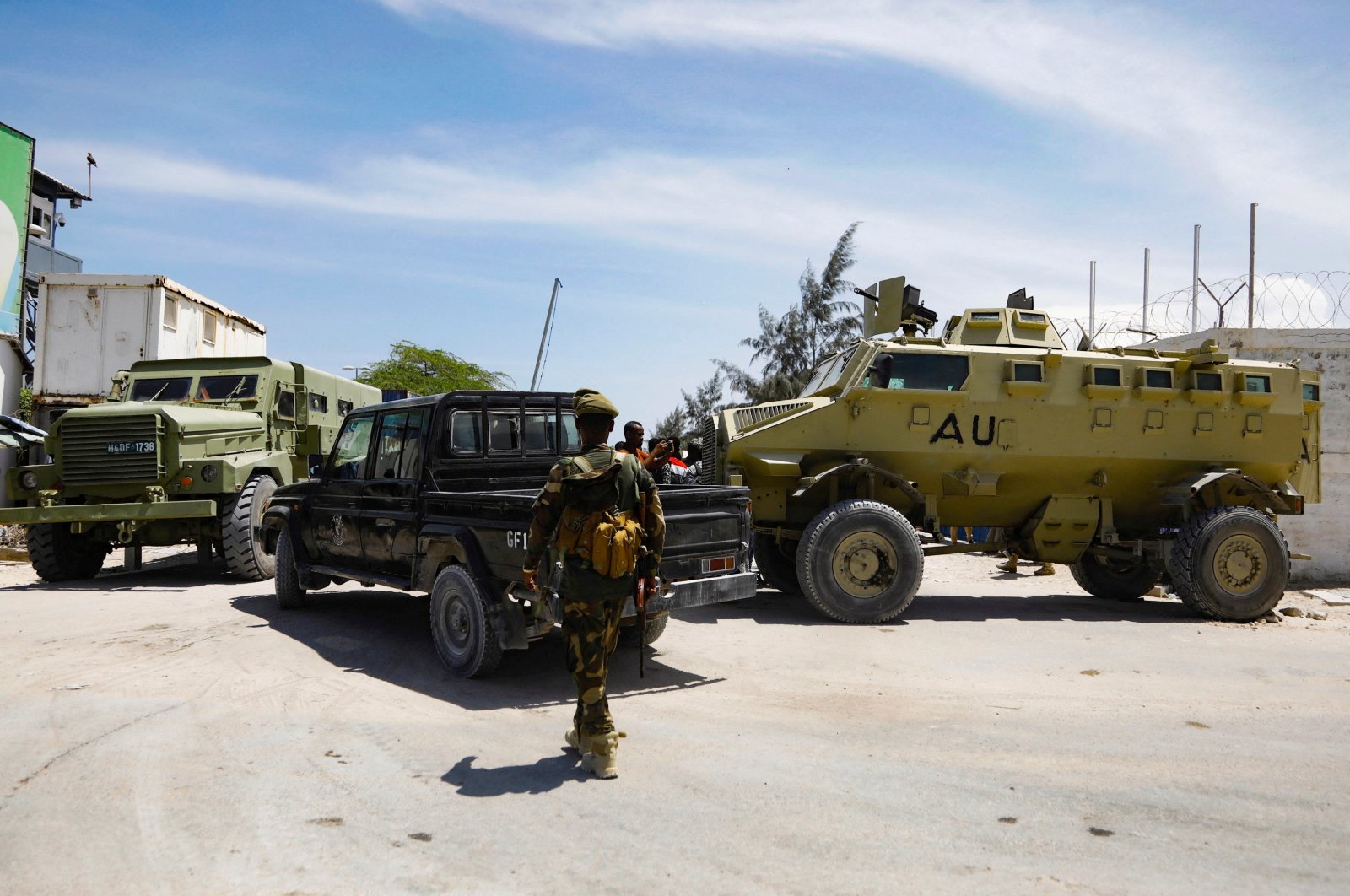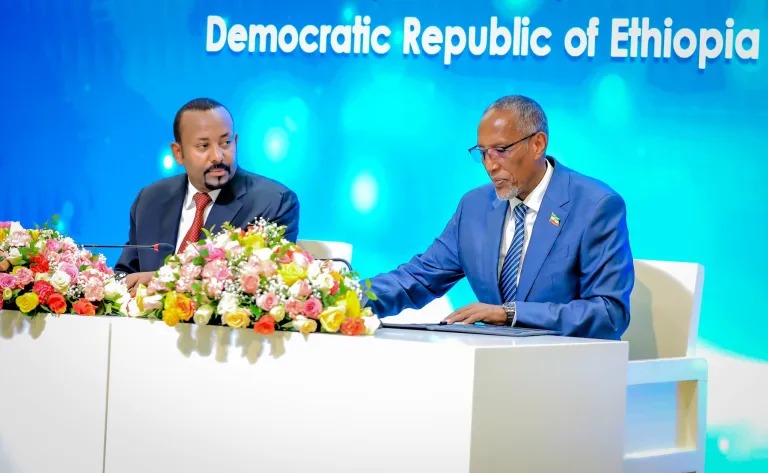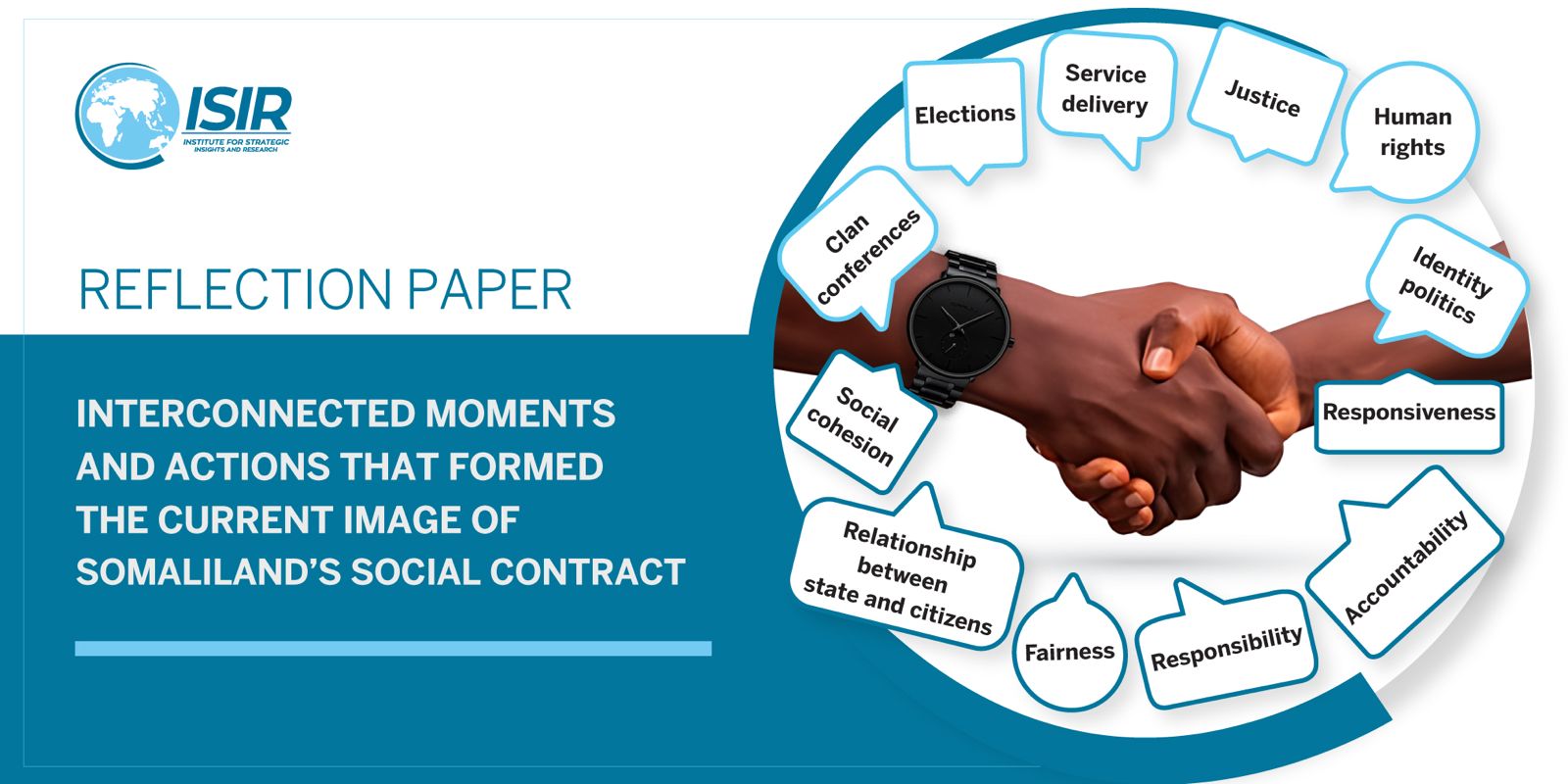When Somalia’s largely-appointed parliament and senate elected Mohamed Abdullahi Mohamed, or Farmajo as he is better known, president, there was optimism in the West. Farmajo was young, he was a former prime minister and diplomat, and he had long lived in the United States.
“This transition represents an important step forward for the country,” acting State Department spokesman Mark Toner said, adding, “The United States looks forward to the timely formation of a new government, and to working in partnership with the President and new government to advance reconciliation, drought relief, security, and build the strong institutions to deliver good governance and development for the Somali people.”
Defense Secretary Jim Mattis outlined U.S. security cooperation with Farmajo’s government: The U.S. committed itself “to build up the Somali capacity to defend itself” by identifying the terrorist threat, by providing equipment and training to African Union peacekeepers in Somalia, and by helping support the Somali forces themselves. On Nov. 27, 2018, U.S. Marine Gen. Thomas D. Waldhauser, commander of U.S. Africa Command, visited Somalia and met with Farmajo. He declared, “I’m proud of the strong relationship we have established with President Farmaajo and his government. President Farmaajo and his administration have made measurable progress and it’s clear they are dedicated to reaching the goal of a safe, stable and prosperous Somalia.”
Department, successive U.S. defense secretaries, and Waldhauser were all had. While the United States continues to pour money into Somalia, the world’s most corrupt country according to Transparency International, and while the U.S. embassy in Somalia continues to double down on the Farmajo experiment, Farmajo increasingly not only turns his back on reform but also apologizes for, if not endorses, terrorism.
Here’s the problem. The tremendous corruption Somalia faces and which Farmajo has not countered has undercut Somalia’s security. Earlier this week, a suicide bombing in the Mogadishu mayor’s office killed 11 and barely missed James Swan, an American citizen and the United Nation’s special representative to the country. Such attacks have become a near weekly occurrence.
It is against this backdrop that Farmajo was caught on tape saying, “Al-Shabab has foreigners with them who refused to harm their own countries and came here to explode our country. But ours [Somali members of al-Shabab] are fools because they do not go to the countries where these foreign elements came from to explode. That exchange would have been fine, but they agreed to harm our own country only.”
In other words, Farmajo is urging Somali extremists to attack in Ethiopia, Kenya, Uganda, and other neighboring countries. Such rhetoric is dangerous, given how al-Shabab has, in the past, done just that. For example, the 2013 Westgate Mall attackers in Nairobi, Kenya, killed 67 including British citizens, Canadians, Frenchmen, Indians, Dutch, and Koreans. The next year, al-Shabab terrorists hijacked a bus in Kenya and executed more than two dozen non-Muslims on board. In April 2015, al-Shabab terrorists killed 148 at Garissa University College in Kenya. Early this year, al-Shabab terrorists attacked the upscale Dusit hotel in Nairobi and targeted foreigners. Al-Shabab has launched other attacks in Uganda, targeting crowds of soccer fans.
Farmajo’s strategy is not only amoral, but it is also stupid, for he essentially seeks to replicate the policies earlier embraced by Pakistan, Saudi Arabia, Syria, and Turkey, each of which believed they could strike a devil’s bargain with extremists to limit their attacks outside their home countries only to discover they were not immune from blowback.
What is to be done? Like a gambler who believes that he can recoup his losses with just one more hand, Ambassador Donald Yamamoto and the State Department continue to double down on a strategy seeking to rebuild Somalia from the center. Across administrations, they have come to believe that the path to peace in the Horn of Africa comes from rebuilding the Somali government in Mogadishu and helping it expand its reach from the center outward.
Given both the failed U.S. faith in Farmajo and the ineffectiveness, if not corruption, of Somali Prime Minister Hassan Ali Khaire who apparently has spent his tenure maneuvering to replace Farmajo, it is time for the State and Defense Departments to consider a periphery-first strategy: consolidating security, stability, and good governance in Djibouti, Ethiopia, Somaliland, and Kenya and then partnering with local leaders who live among their own people. At present, U.S. assistance and Western investment has transformed appointed Somali bureaucrats into millionaires several times. They can skim off the top or use their inside knowledge to win business, all the while living behind high compound walls, sending their families abroad, and generally proving themselves afraid or unable to interact freely and openly with the people they claim to represent.
Meanwhile, high non-governmental organization salaries distort the local economy. It would be a far better use of assistance to invest only in regions of Somalia where local authorities live among their own people and represent them in reality rather than just on a diplomatic flowchart. Simply put, there can be no peace in Somalia until Somalis decide they want it and clan leaders demand it from their own publics. A decade of throwing money at the problem is only making matters worse.
Farmajo’s statement suggesting al-Shabab attack Somalia’s neighbors more than Somalia underscores the failure. The U.S. Mission in Somalia can put out press releases announcing programs and talk about investing in capacity or good governance, but any reasonable metric suggests such investment has been wasted if not counterproductive. It’s time for the Senate Foreign Relations Committee to exercise its oversight and for Secretary of State Mike Pompeo to launch a fundamental review of Horn of Africa strategy so as not to preside over a slow motion train wreck.
Michael Rubin (@Mrubin1971) is a contributor to the Washington Examiner’s Beltway Confidential blog. He is a resident scholar at the American Enterprise Institute and a former Pentagon official.
Categories: Featured, Latest News













